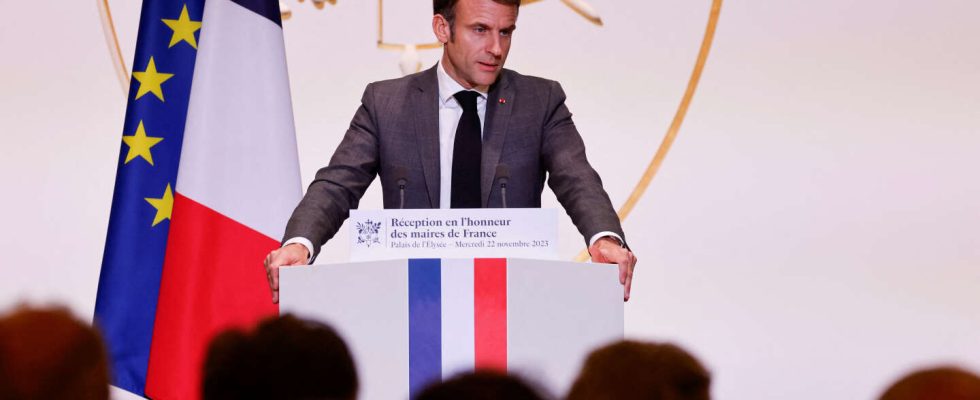They waited a long time, standing, for the speech of the President of the Republic, three quarters of an hour late. But, overall, they were not disappointed. By welcoming “more than a thousand” mayors at the Elysée, Wednesday November 22, while the Association of Mayors of France (AMF) is holding a conference until Thursday in Paris, Emmanuel Macron opened perspectives on all the subjects which exasperate municipal elected officials.
Unsurprisingly, decentralization was at the heart of his speech. Even if he did not return to the sensitive question of reducing the number of “strata”, one of the objectives set for former minister Eric Woerth, deputy (Renaissance) for Oise, commissioned on the question .
On the other hand, promising “real and bold decentralization”he once again delivered an indictment of the current system, which works “ass over head”. “No one is clear who is doing what”he lamented. “Sharing skills doesn’t work”he asserted, promising to “clear things up” : “reclarify responsibilities, behind which we put skills and funding”.
Thus, the departments assume social assistance, but their resources depend on the real estate market, via transfer taxes for payment: “It has nothing to do with social spending”, he noted. And if they manage active solidarity income (RSA), it’s “a skill for which they have no responsibility”. At the same time, is it reasonable for policies, such as housing, to still be defined in Paris?
Macron: “The exercise of all mandates is more complicated”
As a corollary, he opened the much-anticipated project of“an overhaul of the DGF”. This overall operating grant (27 billion euros) is allocated by the State to municipalities, intermunicipalities and departments. It is based on criteria of population, wealth, resources and expenses, but according to an opaque calculation. The head of state promised “a fairer, clearer and more predictable system”.
He finally promised to simplify the rules to allow elected officials to act, while recognizing that “it’s a methodological and cultural revolution”. “As soon as we have a problem”he pointed out, the State has the reflex to either “create a ministry, which I have sometimes done”either “to make a law on the subject”. He put forward two ideas: on the one hand, giving power back to prefects over all state services and agencies; on the other hand, opening up the possibility of derogating from national rules. And this goes with a reflection on the criminal responsibility of public decision-makers, which has “inhibited initiative and complicated the law”.
You have 55% of this article left to read. The rest is reserved for subscribers.

